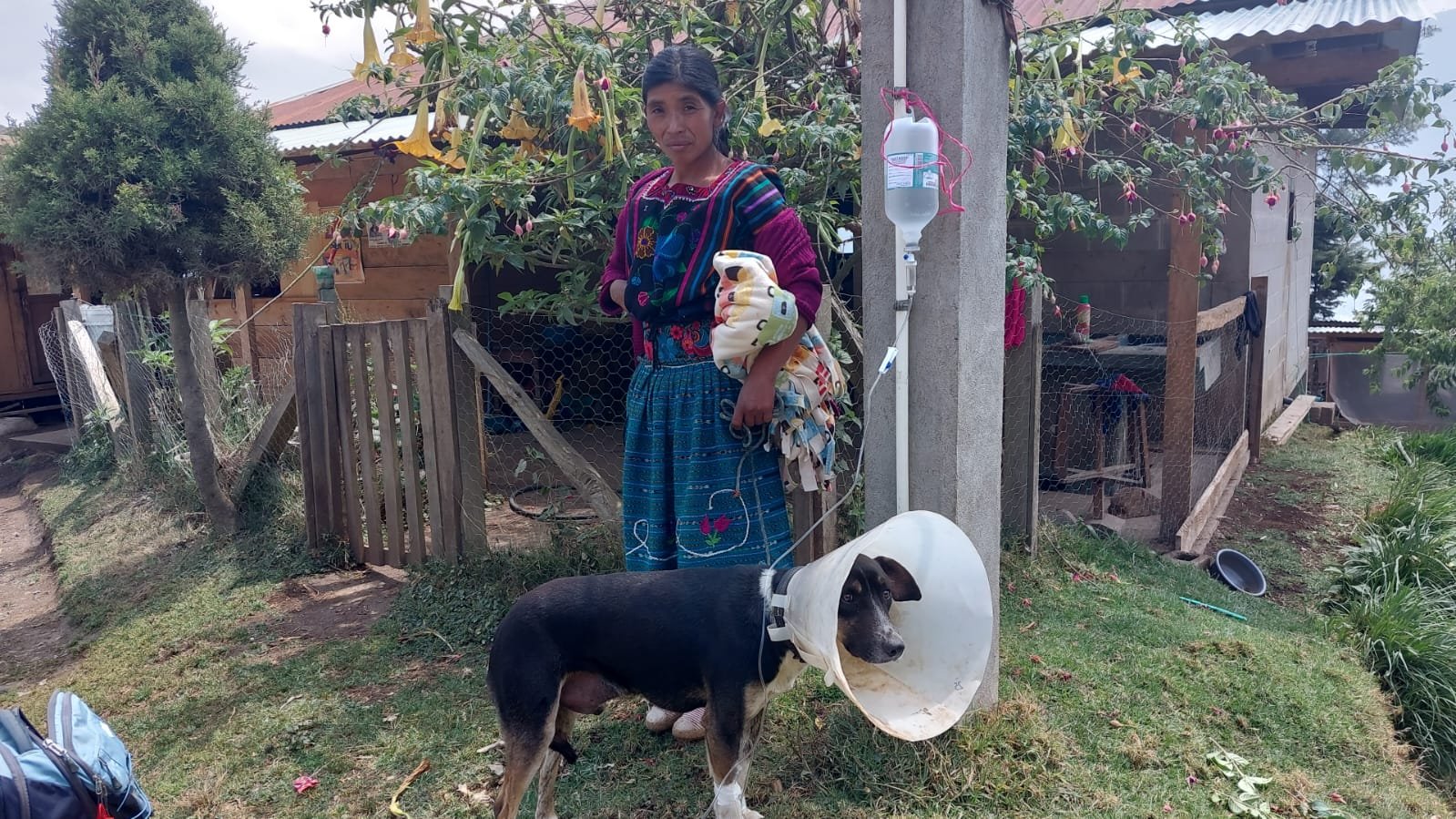Signs of Progress: The Story of Cuello…
… and the Evolution of Pet Ownership in Todos Santos, Guatemala
During a recent sterilization campaign in the rural Mayan village of Todos Santos, Guatemala, our telemedicine team and visiting partner veterinarian performed surgery on a dog named Cuello, who unfortunately experienced some post-operation complications. Cuello had recently been rescued by a pair of sisters and their daughters, who live together in the mountains outside of Todos Santos, in a highly remote area where, sadly, animals are often abandoned. In fact this cruel act is so common that over the years, Cuello’s family has rescued many animals, and they currently care for 10 dogs and 3 cats, one of which recently gave birth to 5 kittens.
Cuello with his family
To understand the complexities of these cases, it’s important to consider the reality for most families in Todos Santos. Cuello’s family, like most, has only an area with dirt floors to offer their pet as he heals. Despite their best efforts of providing him a space with blankets to try to keep the incision clean, using cold compresses, regularly giving Cuello his anti-inflammatory medication, and observing him carefully, it became evident that Cuello’s incision had become inflamed. The family did all they could, and when they noticed that something wasn’t right, they knew from past experience working with our paraveterinarian, Andrés, that they had to call him right away.
Cuello’s family did their best to create a space where he could heal after his surgery
Examining the dog, with guidance from our telemedicine vet in Chile, Andrés could see that blood had accumulated around the incision area. Acting quickly, he coordinated to have Cuello taken to our partner clinic in Huehuetenango, which is around two hours away by car. There, Dr. Adriana needed to surgically drain the blood near the incision. The procedure was a success, and Andrés has returned to check on Cuello, who, we’re happy to say, is healing very nicely.
Thanks to all those who support our telemedicine program, Cuello was able to receive the care he needed!
Although a complication following surgery is never ideal, the promising part of this story is that Cuello’s family has learned, through their interactions with our telemedicine team, the proper way to care for their animals after surgery, the warning signs to look for, and when to call for help.
Just a few years ago, when there was no regular animal healthcare in the remote Mayan community, Cuello’s family would not have had these options, and this story likely would not have had such a happy ending. Thanks to the support of donors like you, our telemedicine program is creating long-term change in Guatemala regarding the access animals have to basic healthcare and the information people have about how to care for their pets responsibly.




